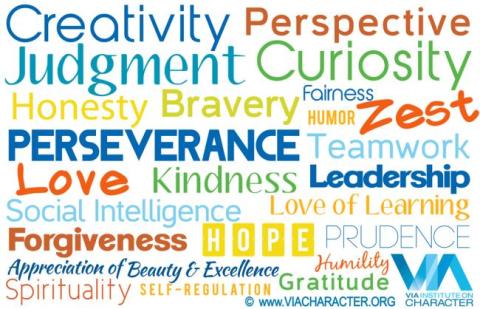The pandemic has brought with it numerous hours to fill with some otherwise atypical activities. Admittedly, I’ve found myself turning to streaming series/shows far too often. It has certainly served as distraction and respite from other challenges, but it also allowed me time to catch up on desired viewing. Brené Brown’s The Call to Courage video on Netflix was at the top of my list. (Full disclosure, the video has lots of storytelling at the beginning and research findings shared near the end). Dr.
There are many career development theories. A few we have reviewed on this blog have included Super’s Life-Span, Life-Space Theory as well as Krumboltz’s Happenstance Learning Theory. However, today we are going to be reviewing the Chaos Theory of Careers (CTC) as set forth by Pryor and Bright, 2011.
Part Two of a Two-Part Series on Transitions *** Before reading this post, take a moment to read Part One - Understanding the Impact of Change*** If you are just arriving at the NIH as a summer student, postbac, graduate student or postdoctoral or clinical fellow, adjusting to your experience at NIH represents a transition that wi
Are you considering a career in medical writing? Intellectual property? Program management? Regulatory Affairs? Science Education and Outreach? And beyond?
Many are familiar with FOMO (Fear of Missing Out). This acronym was coined by Patrick McGinnis, an entrepreneur and investor, during his time at Harvard Business School. As a small-town boy from Maine he describes the overwhelming nature of being “transplanted from a calm place with a simple lifestyle to a hub of 1,800 highly ambitious, connected young people.” His mania to try to fit it all in led to his FOMO discovery and his book FOMO Sapiens is now available.
There are four groups of skills that all trainees need to have to help ensure success in their careers. These skills are not only beneficial for success if your current role, but are vital skills to continue to develop in order to excel in future career paths. Below are descriptions of these skills sets and a listing of blog posts on each topic. Check out the posts to delve a bit further into each subject area.

Do you need help identifying your signature strengths? According to the VIA Institute on Character, knowing your character strengths isn’t just interesting information to have; it can have a positive impact on your life overall. It is believed that understanding your strengths can help you: 1. Manage and overcome problems; 2. Improve your personal and professional relationships; 3. Enhance your overall sense of well-being.

A recent Hidden Brain podcast entitled “You 2.0: Dream Jobs” explored the importance of finding meaning in your work. Amy Wrzesniewski is a Professor of Management at Yale and her current research focuses on studying how employees shape their interactions and relationships with others in the workplace to add meaning to their job and change their own work identity. She notes, “People who see their work as a calling are significantly more satisfied with their jobs. They’re significantly more satisfied with their lives.

